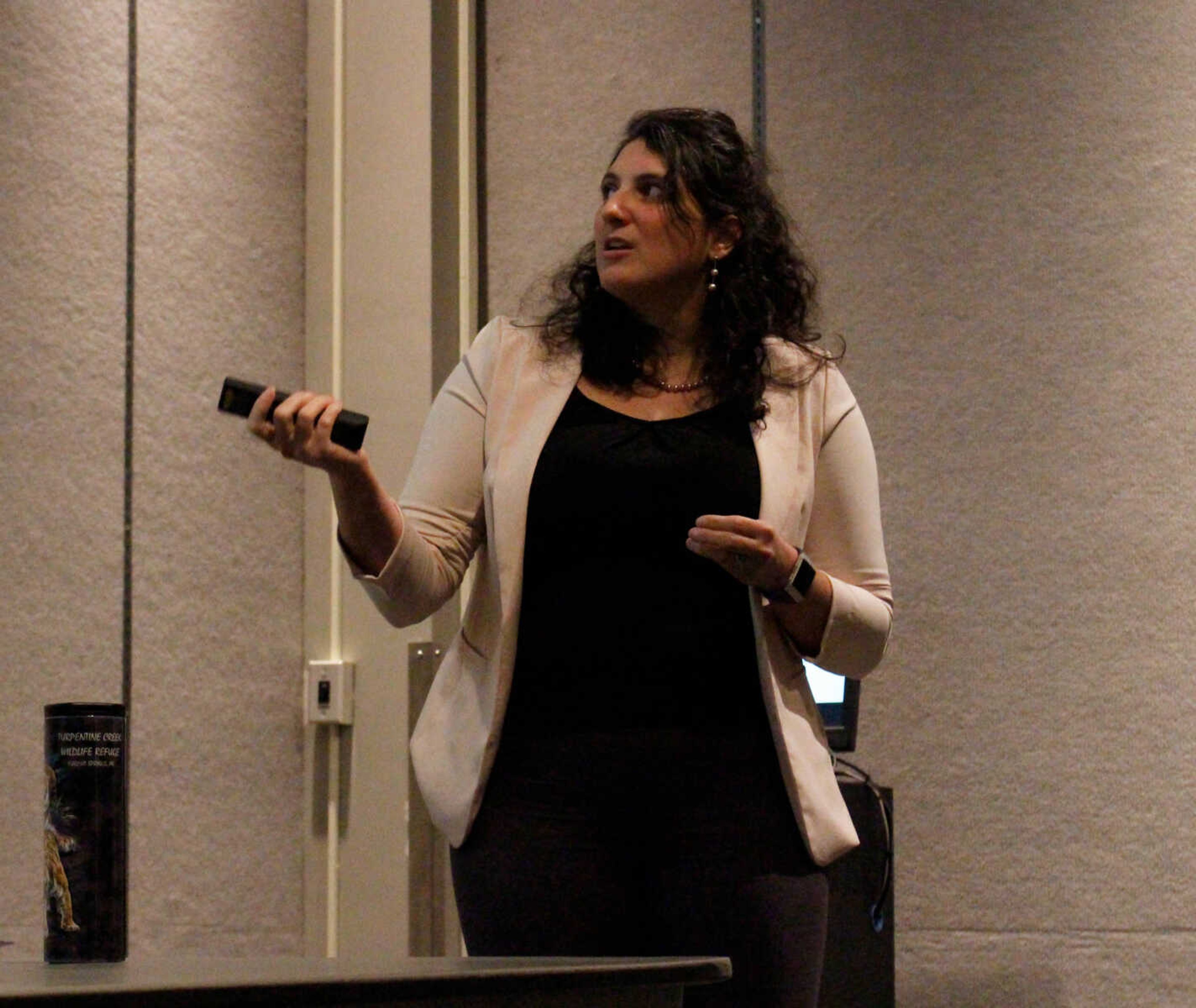More than half a million people in Missouri have an eating disorder, according to the Missouri Eating Disorders Council of the Missouri General Assembly.
Counseling honor society Chi Sigma Iota hosted a Counseling Colloquium on Friday, Nov. 8 in the University Center Program Lounge.
Washington University Clinical Research Coordinator Marie-Laure Firebaugh discussed signs of these often underdiagnosed illnesses, such as a change in eating habits or sudden changing attitudes towards food. The event provided resources and education for Southeast students and the wider community.
Firebaugh the five main classifications of eating disorders: anorexia, bulimia, binge-eating disorder, unspecified feeding or eating disorder, and avoidant restrictive food intake disorder.
While all of these eating disorders are serious to an individual’s health, Firebaugh emphasized individuals are capable of full recovery from any eating disorder.
Firebaugh, who has researched eating disorders for the last four years, also coordinates the free Body U program, which utilizes online screening, a chat function and other educational resources to promote wellness and treat mental health concerns like eating disorders.
Twelve Missouri universities currently use Body U, including Southeast.Students can access this resource from the counseling services page on Southeast’s website.
Graduate Assistant at the Counseling Clinic and Chi Sigma Iota president Laura Bauman said she has been in recovery from bulimia for several years.
Bauman, who earned her undergraduate degree in nutrition and dietetics, said the first step to combating eating disorders is changing the conversation surrounding food.
Diet culture and fad diets can often cause unhealthy eating habits, she said, in addition to assigning “good” or “bad” labels to food.
“Anytime we’re choosing our eating habits based on external advice, we’re not making eating choices in line with ourselves,” Bauman said.
Bauman said young adults who are transitioning to college lifestyles are more susceptible to an eating disorder because significant life changes can trigger a shift in eating habits, which can develop into something more serious.
Southeast graduate student Anastasia Kinsley is working at the counseling clinic on campus and pursuing a master’s degree in mental health counseling.
Kinsley said while they don’t diagnose eating disorders at the clinic, she has seen several students who display signs of an eating disorder, and at least one very strong case.
Missouri is one of the only states with an Eating Disorders Council, Firebaugh said. As created by the Missouri General Assembly, the council raises awareness and provides education on preventing and treating eating disorders.
The Southeast chapter of Chi Sigma Iota is open to all counseling students who have completed at least nine hours of counseling courses and have at minimum 3.5 GPA.
Eating disorders can affect anyone, regardless of age, gender, race, ethnicity, socioeconomic class or sexual orientation. Anyone struggling with an eating disorder can contact the National Eating Disorder Association Helpline at (800) 931-2237, or contact Southeast’s Counseling and DIsability Services at (573) 986-6191.




